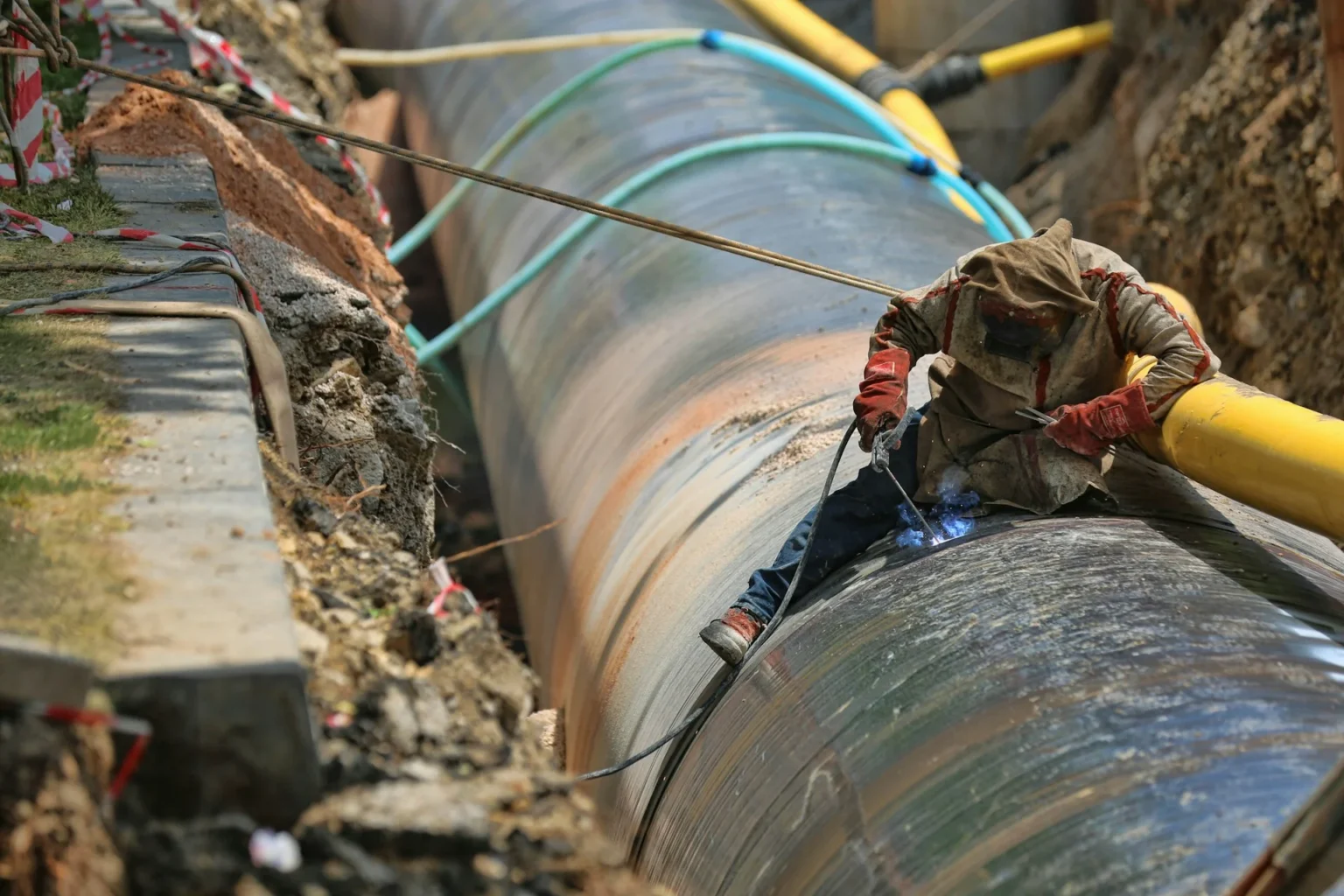Nigeria-In a groundbreaking endeavor to bolster its energy infrastructure, Nigeria has initiated the construction of a $2.8 billion gas pipeline project, marking a historic milestone as the largest in the country’s annals. The Ajaokuta-Kaduna-Kano (AKK) Natural Gas Pipeline, spanning an impressive 614 kilometers, is set to usher in a paradigm shift in Nigeria’s energy landscape.
As a pivotal component of Nigeria’s Gas Master Plan, the AKK pipeline is meticulously designed to transport 3,500 million metric standard cubic feet per day of dehydrated gas. This ambitious venture is spearheaded by the Nigerian National Petroleum Corporation (NNPC) through a dynamic build-and-transfer Public-Private Partnership (PPP) model.
The impetus behind the AKK project stems from Nigeria’s enduring struggle with electricity shortages, a predicament persisting for decades. Currently, the country’s power output languishes below a sufficient 7,000MW generating capacity. The AKK pipeline aims to bridge this gap by supplying gas to three electricity power stations in its inaugural phase, with expansive plans to extend its reach to North Africa in subsequent phases.
H.E. President Muhammadu Buhari expressed sanguinity about the project’s potential to galvanize industrialization, stimulate employment, and catalyze electricity generation. The $2.6 billion project is financed through a loan secured from the China Export and Credit Insurance Corporation and the Bank of China, underscoring China’s active role in propelling Nigeria’s infrastructural development.
Upon completion, the AKK pipeline is poised to inject up to 2.2 billion standard cubic feet of gas per day into the domestic market. The project’s strategic significance lies in its capacity to rejuvenate declining industries and pave the way for the development of new ones in the transit towns along the pipeline.
Abdulkadir Ahmad, the Group Executive Director of Gas and Power at NNPC, provided insight into the project’s progress, highlighting its commendable 73.3% completion stage. He underscored the immense opportunities that will unfold, envisioning Kaduna gaining access to 900 megawatts of power and abundant gas to fortify the establishment of industries and petrochemical plants.
Emphasizing the project’s significance in addressing the country’s persistent power supply inadequacies, Idris Bugaje, the Executive Secretary of the National Board for Technical Education, stressed its potential to generate and distribute power to communities and industries, particularly in the power-starved Northern states.
The AKK pipeline project unfolds as a multi-phase initiative. The first phase centers on a 200km segment between Ajaokuta and Abuja, entailing a cost of $855 million. Subsequent phases include a 193km section between Abuja and Kaduna, with an approximate cost of $835 million, and a 221km pipeline linking the Kaduna terminal gas station to the Kano terminal gas station, estimated at $1.2 billion.
Beyond its domestic ramifications, the AKK pipeline assumes a pivotal role in the broader Trans-Nigeria Gas Pipeline (TNGP) project, spanning a colossal 1,300km and establishing a link between Nigeria and Algeria. Positioned as the largest natural gas pipeline in Nigeria to date, the TNGP aligns with the Trans-Saharan Pipeline system, aspiring to export natural gas to European clientele.
The prospective benefits of the AKK and TNGP projects are multifaceted. They pledge to fortify energy security by ensuring a reliable supply of natural gas for power generation, industrial processes, and domestic consumption. Foreseen as revenue-generating enterprises, the projects are expected to contribute significantly to Nigeria’s foreign exchange reserves through gas exports.
Access to copious natural gas is anticipated to galvanize industrial development, fostering job creation and economic diversification. Moreover, the associated infrastructure development, encompassing construction, maintenance, and monitoring, is poised to stimulate employment opportunities and invigorate related sectors.
Crucially, the projects contribute to environmental sustainability goals by facilitating the utilization of associated gas that would otherwise be flared. This aligns with global aspirations to reduce gas flaring and minimize environmental impact.
The regional integration aspect of the projects, connecting southern Nigeria to the proposed Trans-Saharan Gas Pipeline, not only fosters economic ties but also lays the foundation for enhanced trade and cooperation. As these transformative initiatives progress, Nigeria stands on the cusp of unlocking its vast gas potential, catalyzing economic growth, fortifying energy security, and championing environmental sustainability.



